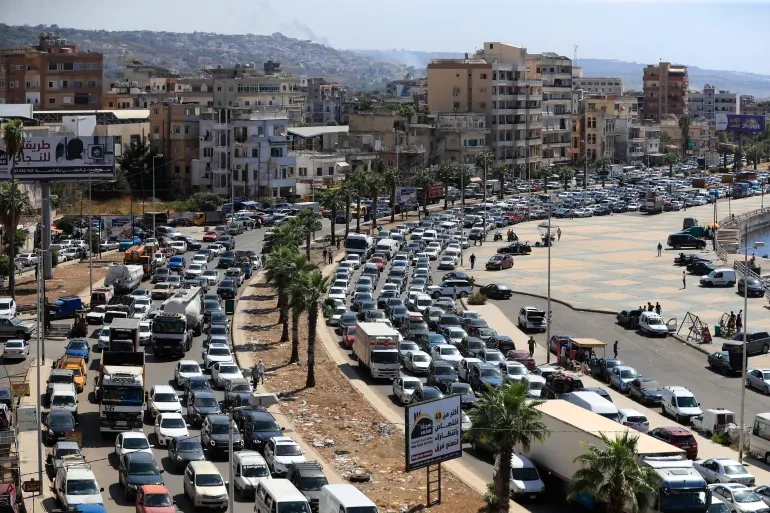Mass exodus in Lebanon as Israeli airstrikes trigger widespread panic

Stay tuned with 24 News HD Android App

Health workers in southern Lebanon scrambled to treat hundreds of people wounded on Monday, as families rushed to flee the deadliest Israeli strikes in nearly a year of cross-border clashes.
"Wounded people are pouring in non-stop... I don't know how many have been wounded because the injured are lining the street outside the hospital," said an employee of the Tebnin hospital in southern Lebanon, requesting anonymity citing security concerns.
Israel said its air strikes on southern and eastern Lebanon had targeted hundreds of Hezbollah sites, and it warned of more to come.
Lebanon's health ministry said the strikes had killed 274 people including 21 children, the highest single-day toll since Hezbollah and Israel began trading fire when the Gaza war erupted on October 7.
At a hospital near the southern city of Nabatiyeh, less than 15 kilometres (nine miles) from the Israeli border, doctor Jamal Badran described "a disaster and a massacre".
"They struck near my house," he told AFP by telephone.
"I had just returned from the hospital, where there are many dead and wounded.
"They bombed us while we were recovering wounded people" from a strike site, he added.
In the southern city of Sidon, an AFP correspondent saw traffic jams on the main highway to Beirut, as families fled the strikes in cars and vans.
Some of the areas hit on Monday had largely been spared from the near-daily cross-border violence that began when Palestinian militant group Hamas attacked Israel on October 7, sparking the Gaza war.
Hezbollah and other Iran-backed groups have been increasingly drawn into the war, with Israel saying earlier this month its focus was shifting northwards towards Lebanon.
Monday's strikes came after Hezbollah communications devices exploded last week in an attack blamed on Israel, and after a strike on south Beirut killed a top Hezbollah commander and dozens more people.
'Sudden escalation'
Lebanese journalist Nazir Reda was trying to reach his hometown of Babliyeh, some 25 kilometres from the border, to pull his family, including his baby boy, away from the violence.
"No one expected such a completely sudden escalation to reach even villages that were safe, like Babliyeh, and that had not been bombed in previous wars," he said while stuck in bumper-to-bumper traffic as he drove from Beirut.
He said he had left his children in the village because their school was supposed to reopen in a few days' time, and he thought they would be safer than in Beirut's southern suburbs, where he usually lives.
"I had to rush south again and take the children to Beirut," he told AFP, adding that the family would stay with friends in a Christian-majority neighbourhood in Beirut.
"Everyone is heading (to Beirut) with their children and their belongings -- it's the first time we see such panic since 2006," when Hezbollah and Israel last went to war, he said.
Bilal Kachmar, a disaster management official in the southern coastal city of Tyre, said roads were packed with people driving away from their towns and villages.
Hundreds rushed to a school-turned-shelter in Tyre, with many others waiting on the streets with their belongings to see what would happen next, Kachmar told AFP.
Texts and calls
Lebanon's education ministry said all educational institutions would shut for two days.
In Nabatiyeh, teacher Adra Kanso said strikes hit "close to residential areas and a complex of schools" that had not yet opened for the new academic year.
In Beirut, several parents said their children's schools and kindergartens had contacted them, to ask them to pick up their kids.
Lebanon's official National News Agency said people were receiving Israeli phone messages on their landlines, warning them to evacuate, with even Information Minister Ziad Makary's office receiving a call.
Other people reported receiving mobile phone text messages with similar warnings from an unidentified sender.
The reports came after the Israeli military told people in Lebanon to move away from Hezbollah targets and vowed to carry out more strikes, in the first such warning to people in Lebanon since the war in Gaza erupted.
